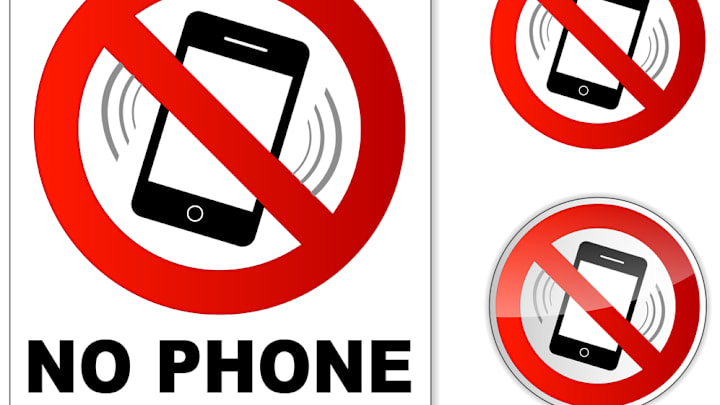What I Learned from a Week Without My Phone

Phones have become extensions of ourselves — a constant companion, a portal to the world, a tool for everything from work to entertainment to connection. So, what happens when you disconnect? What do you find when the endless scroll stops, and the notifications go silent?
I decided to find out by spending a full week without my phone. No texts, no social media, no podcasts, no GPS. Just me, my thoughts, and the world as it unfolded in real time. What I expected was boredom, disconnection, and maybe a little frustration. What I found, however, was far more enlightening.
Day One: The Itch to Check
The first day was, without a doubt, the hardest. My thumb kept reaching for a phone that wasn’t there. My mind wandered to what I might be missing — emails, texts, news updates. The urge to check, to scroll, to fill the empty moments was almost instinctual.
It became glaringly obvious how often I relied on my phone to escape discomfort, boredom, or simply being alone with my thoughts. That constant reach for my phone wasn’t just about staying informed; it was a form of avoidance — a way to distract myself from stillness.
Day Two: Time Expands
On the second day, something remarkable happened. Time seemed to stretch. Moments that used to blur together felt longer, more spacious. Without the constant flicker of my screen, I found myself lingering over breakfast, savoring my coffee without scrolling through emails.
I started to notice things I’d overlooked before — the sound of birds outside my window, the way the light changed throughout the day, the nuances in people’s expressions during conversations. Without the distraction of my phone, I was more present, more attuned to the world around me.
Day Three: Reclaiming Focus
By the third day, I felt an unexpected sense of clarity. Without the endless barrage of information, my mind was quieter, less fragmented. I could sit down and read a book without the constant urge to check my messages. I could work on a task without the distraction of incoming notifications.
It struck me how much mental clutter my phone had been adding to my day — snippets of news, random social media posts, half-read emails. By stepping away, I was reclaiming my focus, allowing my brain to rest and reset.
Day Four: Conversations Deepen
Conversations took on a new depth by the fourth day. Without the constant pull to check my phone, I was fully present in each interaction. I noticed nuances in people’s stories, picked up on subtle shifts in tone and expression.
I also realized how often I had used my phone as a social crutch — checking it during awkward silences, using it to avoid small talk. Without it, I had to be more engaged, more present, more willing to sit with discomfort rather than escape it.
Day Five: Rediscovering Boredom
By the fifth day, I felt the weight of boredom settling in. Without the endless stimulation of my phone, there were stretches of time that felt empty, aimless. But instead of reaching for my phone, I leaned into the boredom.
What emerged was a sense of creative restlessness. I started sketching, something I hadn’t done in years. I took long walks, letting my mind wander without direction. I cooked a meal from scratch, savoring each step rather than rushing through it.
Boredom, I realized, wasn’t the enemy — it was fertile ground for creativity, reflection, and daydreaming.
Day Six: Confronting Emotions
By the sixth day, the emotional undercurrent of my phone use became clearer. Without the constant distractions, feelings I had been numbing or avoiding started to surface — anxiety, loneliness, even sadness.
Sitting with those emotions was uncomfortable, but it was also illuminating. I realized how often I had used my phone to fill emotional voids — texting friends when I felt lonely, scrolling through social media when I felt anxious. Without those distractions, I was forced to confront and process those feelings, to sit with them rather than escape them.
Day Seven: Reclaiming My Time
On the final day, I felt a profound sense of calm. The urge to check my phone had all but dissipated. I felt lighter, more present, more attuned to my surroundings. I had rediscovered the simple pleasure of doing one thing at a time — eating without distractions, walking without music, sitting without scrolling.
Reclaiming my time wasn’t just about reducing screen time; it was about reclaiming my attention, my focus, my connection to the present moment. It was about breaking the habit of constant distraction and rediscovering what it feels like to be fully present in my own life.
What I Learned from a Week Without My Phone
Disconnecting from my phone wasn’t just a digital detox — it was a profound reminder of how much life we miss when we’re constantly plugged in. Without the screen to occupy my attention, I was able to reconnect with the world around me, with myself, and with the quiet moments that often get lost in the noise.
I learned that boredom isn’t the enemy; it’s an invitation to get creative, to reflect, to rest. I learned that discomfort isn’t something to avoid but something to lean into and learn from. And I learned that life is richer, deeper, and more meaningful when we’re not constantly reaching for the screen.
I won’t be giving up my phone forever. But I will be more mindful of how I use it — and more intentional about how I spend my time without it. Because sometimes, the most profound discoveries happen not when we’re connected, but when we’re disconnected.